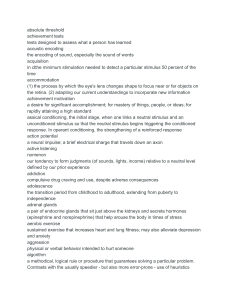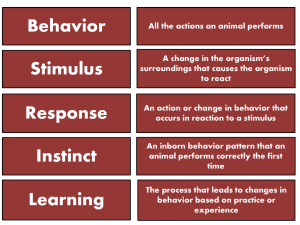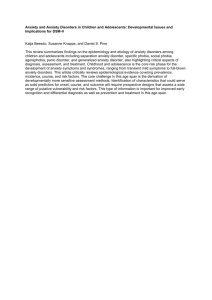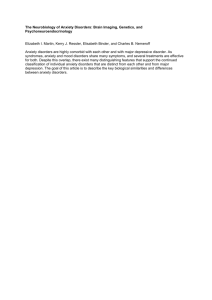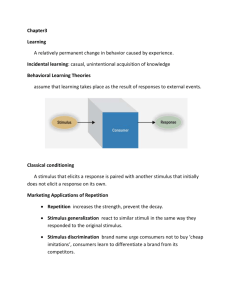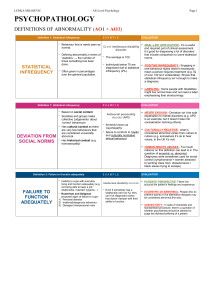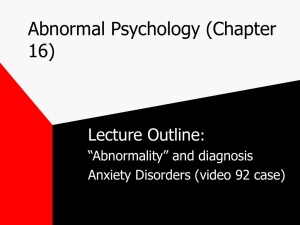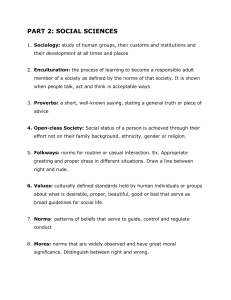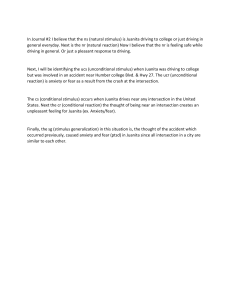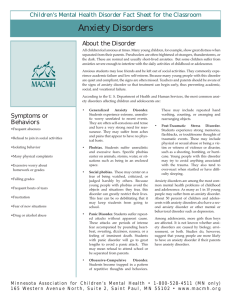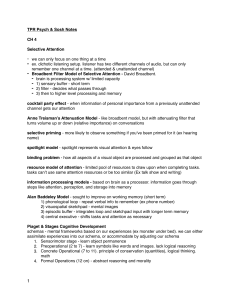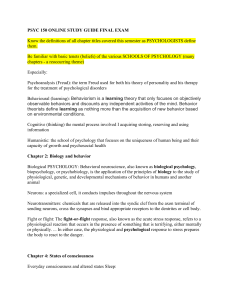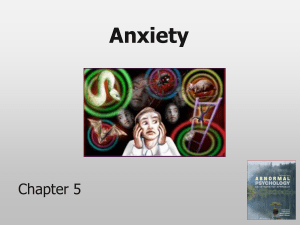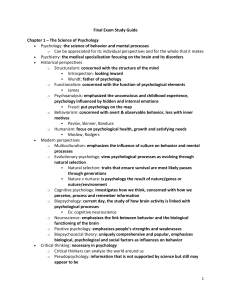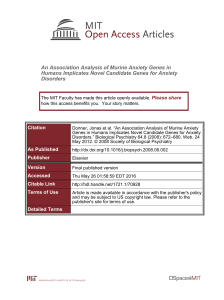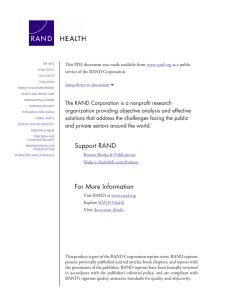Glossary of Key Terms
advertisement
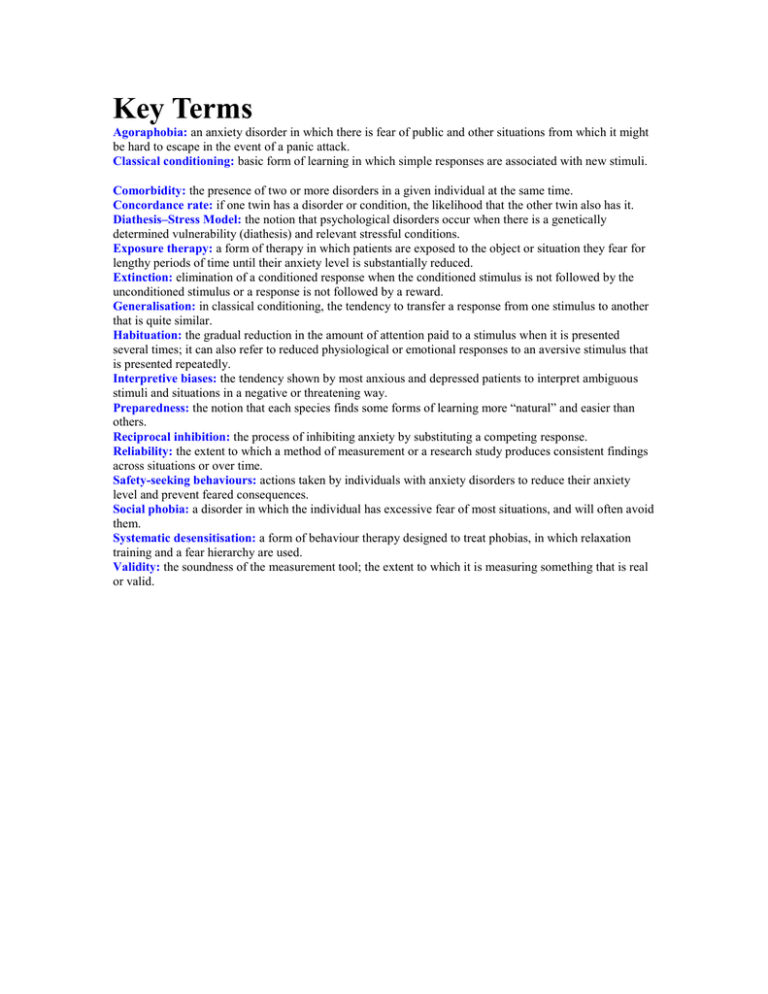
Key Terms Agoraphobia: an anxiety disorder in which there is fear of public and other situations from which it might be hard to escape in the event of a panic attack. Classical conditioning: basic form of learning in which simple responses are associated with new stimuli. Comorbidity: the presence of two or more disorders in a given individual at the same time. Concordance rate: if one twin has a disorder or condition, the likelihood that the other twin also has it. Diathesis–Stress Model: the notion that psychological disorders occur when there is a genetically determined vulnerability (diathesis) and relevant stressful conditions. Exposure therapy: a form of therapy in which patients are exposed to the object or situation they fear for lengthy periods of time until their anxiety level is substantially reduced. Extinction: elimination of a conditioned response when the conditioned stimulus is not followed by the unconditioned stimulus or a response is not followed by a reward. Generalisation: in classical conditioning, the tendency to transfer a response from one stimulus to another that is quite similar. Habituation: the gradual reduction in the amount of attention paid to a stimulus when it is presented several times; it can also refer to reduced physiological or emotional responses to an aversive stimulus that is presented repeatedly. Interpretive biases: the tendency shown by most anxious and depressed patients to interpret ambiguous stimuli and situations in a negative or threatening way. Preparedness: the notion that each species finds some forms of learning more “natural” and easier than others. Reciprocal inhibition: the process of inhibiting anxiety by substituting a competing response. Reliability: the extent to which a method of measurement or a research study produces consistent findings across situations or over time. Safety-seeking behaviours: actions taken by individuals with anxiety disorders to reduce their anxiety level and prevent feared consequences. Social phobia: a disorder in which the individual has excessive fear of most situations, and will often avoid them. Systematic desensitisation: a form of behaviour therapy designed to treat phobias, in which relaxation training and a fear hierarchy are used. Validity: the soundness of the measurement tool; the extent to which it is measuring something that is real or valid.
